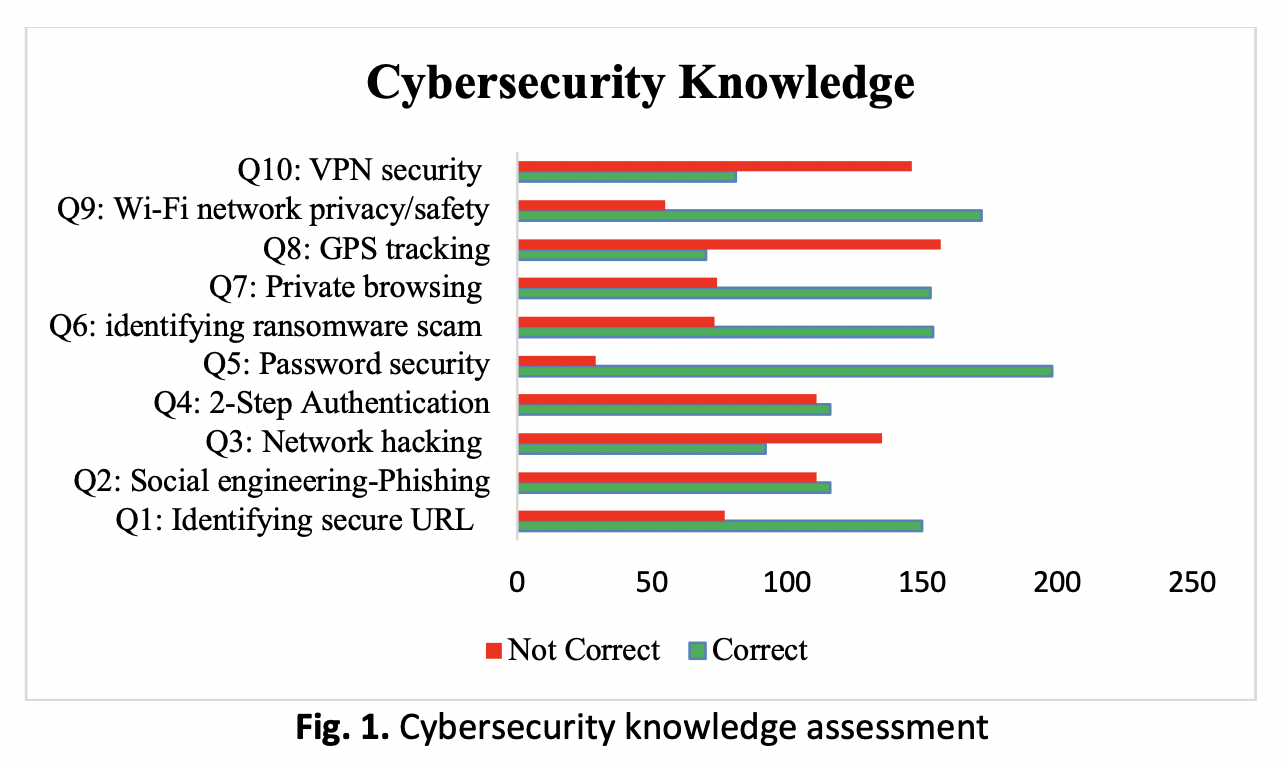Cybersecurity Knowledge Deterioration and the Role of Gamification Intervention
DOI:
https://doi.org/10.37934/araset.43.1.6694Keywords:
Cybersecurity, Cybersecurity Knowledge, Cybersecurity Gamification, Gamification, Cybersecurity AwarenessAbstract
Cybersecurity is becoming an overly critical issue in contemporary times. Cyberspace safety is declining, and this covers all categories of persons, businesses, institutions, and even the government. Deterioration in cybersecurity knowledge and awareness has led people to become easy prey/victims of cybercrime. The more novel security systems are being developed, the higher the cyberattacks as hackers, scammers, and cybercriminals are innovative in their techniques to attack cyber-users. It is therefore paramount to investigate the stance of cybersecurity knowledge among the general IT (Information Technology) users, especially in the 21st century. This paper designed a cybersecurity quiz based on adaptations from literature and past cybersecurity quizzes and conducted investigations to test the knowledge of random cyber-users via the cybersecurity quiz. Results from investigations are quite surprising and instructive, thus serving as a propelling motivation to develop a cybersecurity game. Among the 10-questionnaire cybersecurity quiz, it was discovered that most cyber-users lack knowledge about network security. Also, the question on social engineering was not well performed by the respondents. Thus, it is important for upcoming innovations to take into consideration the aspects of network security, social engineering when designing cybersecurity gamification approaches. Gamification has been used as teaching aids for diverse learning fields, however the use of games in cybersecurity is still understudied. Thus, the result of this quiz is intended to be used to further boost the development of a cybersecurity game, which can be age centric, thus developing cybersecurity games that will be suitable for specific user groups. Interestingly, though females were not regular game players, however they were highly interested in playing a cybersecurity game, as majority of cyber-users (males inclusive), believed that a cybersecurity knowledge gamification approach can help enhance their cybersecurity knowledge and awareness. Conclusively, it is obvious that both the young and old still lack basic cybersecurity knowledge, thereby making them easy prey for cyberattacks. Gamification if applied properly into cybersecurity, could be an interactive learning platform that is both enjoyable, produces a high spirit of learning as well as help serve as a strong awareness tool that can boost cybersecurity user’s knowledge.
Downloads





























